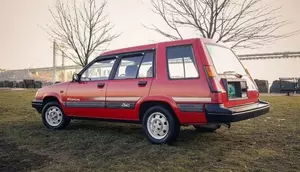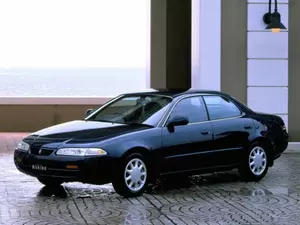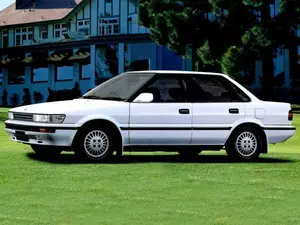
| Vehicle | Precise engine size | Difference from world average | Engine size to consumption ratio | Horsepower from 1 L | Engine size to 100 kg of weight |
|---|---|---|---|---|---|
| 1.6i |
1.58 L (1578 cc) |
32.7% smaller | - | 104 hp from 1 L | - |
| 1.8 GDI 16V |
1.79 L (1794 cc) |
23.5% smaller | - | 70 hp from 1 L | 163 cc to 100 kg |
| Vehicle | 1.6i |
|---|---|
| Precise engine size | 1.58 L (1578 cc) |
| Difference from world average | 32.7 smaller |
| Engine size to consumption ratio | - |
| Horsepower from 1 L | 104 hp from 1 L |
| Engine size to 100 kg of weight | - |
| Vehicle | 1.8 GDI 16V |
| Precise engine size | 1.79 L (1794 cc) |
| Difference from world average | 23.5 smaller |
| Engine size to consumption ratio | - |
| Horsepower from 1 L | 70 hp from 1 L |
| Engine size to 100 kg of weight | 163 cc to 100 kg |

| Vehicle | Precise engine size | Difference from world average | Engine size to consumption ratio | Horsepower from 1 L | Engine size to 100 kg of weight |
|---|---|---|---|---|---|
| 1.5 |
1.5 L (1498 cc) |
36.1% smaller | - | 70 hp from 1 L | 150 cc to 100 kg |
| 1.6i |
1.59 L (1587 cc) |
32.4% smaller | - | 72 hp from 1 L | 159 cc to 100 kg |
| Vehicle | 1.5 |
|---|---|
| Precise engine size | 1.5 L (1498 cc) |
| Difference from world average | 36.1 smaller |
| Engine size to consumption ratio | - |
| Horsepower from 1 L | 70 hp from 1 L |
| Engine size to 100 kg of weight | 150 cc to 100 kg |
| Vehicle | 1.6i |
| Precise engine size | 1.59 L (1587 cc) |
| Difference from world average | 32.4 smaller |
| Engine size to consumption ratio | - |
| Horsepower from 1 L | 72 hp from 1 L |
| Engine size to 100 kg of weight | 159 cc to 100 kg |

| Vehicle | Precise engine size | Difference from world average | Engine size to consumption ratio | Horsepower from 1 L | Engine size to 100 kg of weight |
|---|---|---|---|---|---|
| 1.5 16V |
1.5 L (1497 cc) |
36.2% smaller | - | 70 hp from 1 L | - |
| 1.3 i |
1.33 L (1331 cc) |
43.3% smaller | - | 73 hp from 1 L | - |
| 1.6 i |
1.59 L (1587 cc) |
32.4% smaller | - | 72 hp from 1 L | - |
| Vehicle | 1.5 16V |
|---|---|
| Precise engine size | 1.5 L (1497 cc) |
| Difference from world average | 36.2 smaller |
| Engine size to consumption ratio | - |
| Horsepower from 1 L | 70 hp from 1 L |
| Engine size to 100 kg of weight | - |
| Vehicle | 1.3 i |
| Precise engine size | 1.33 L (1331 cc) |
| Difference from world average | 43.3 smaller |
| Engine size to consumption ratio | - |
| Horsepower from 1 L | 73 hp from 1 L |
| Engine size to 100 kg of weight | - |
| Vehicle | 1.6 i |
| Precise engine size | 1.59 L (1587 cc) |
| Difference from world average | 32.4 smaller |
| Engine size to consumption ratio | - |
| Horsepower from 1 L | 72 hp from 1 L |
| Engine size to 100 kg of weight | - |

| Vehicle | Precise engine size | Difference from world average | Engine size to consumption ratio | Horsepower from 1 L | Engine size to 100 kg of weight |
|---|---|---|---|---|---|
| 1.5 |
1.45 L (1452 cc) |
38.1% smaller | - | 59 hp from 1 L | 161 cc to 100 kg |
| 1.5 i |
1.5 L (1496 cc) |
36.2% smaller | - | 63 hp from 1 L | 150 cc to 100 kg |
| 1.6 |
1.45 L (1452 cc) |
38.1% smaller | - | 59 hp from 1 L | 161 cc to 100 kg |
| 1.6 i |
1.58 L (1578 cc) |
32.7% smaller | - | 104 hp from 1 L | 158 cc to 100 kg |
| Vehicle | 1.5 |
|---|---|
| Precise engine size | 1.45 L (1452 cc) |
| Difference from world average | 38.1 smaller |
| Engine size to consumption ratio | - |
| Horsepower from 1 L | 59 hp from 1 L |
| Engine size to 100 kg of weight | 161 cc to 100 kg |
| Vehicle | 1.5 i |
| Precise engine size | 1.5 L (1496 cc) |
| Difference from world average | 36.2 smaller |
| Engine size to consumption ratio | - |
| Horsepower from 1 L | 63 hp from 1 L |
| Engine size to 100 kg of weight | 150 cc to 100 kg |
| Vehicle | 1.6 |
| Precise engine size | 1.45 L (1452 cc) |
| Difference from world average | 38.1 smaller |
| Engine size to consumption ratio | - |
| Horsepower from 1 L | 59 hp from 1 L |
| Engine size to 100 kg of weight | 161 cc to 100 kg |
| Vehicle | 1.6 i |
| Precise engine size | 1.58 L (1578 cc) |
| Difference from world average | 32.7 smaller |
| Engine size to consumption ratio | - |
| Horsepower from 1 L | 104 hp from 1 L |
| Engine size to 100 kg of weight | 158 cc to 100 kg |